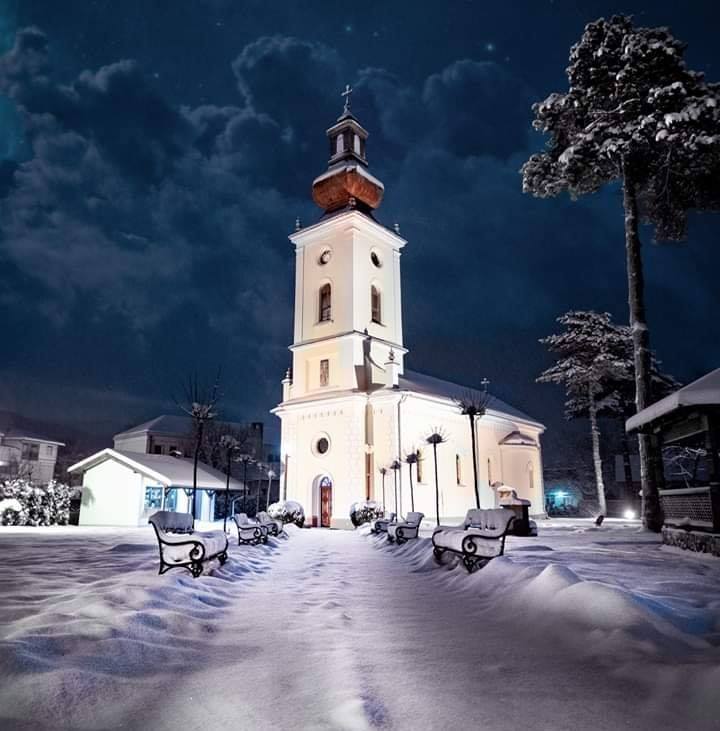British Legation
Belgrade
12 December 1913
Dear Mr. Stefanovitch,
Thank you for your letter which I received yesterday. I had intended to visit you this morning, but as I am unable to leave, I am writing these few lines to draw your attention to a matter that somewhat concerns my Government.
It appears that the police in Üsküb1 have closed a large number of shops that have business relations with Salonika; however, most have been allowed to reopen on the condition of paying a bribe of 500 dinars each. The representative of an English firm, the owner of one of these shops, has refused to make this payment and has approached our Vice Consulate. My Government would like to understand the reason for this police intervention, following which British interests are undoubtedly prejudiced, and I particularly wish to draw your attention to the imposition of a bribe2 by the police under the circumstances I have just described.
I will come to see you tomorrow morning and we can discuss this matter further.
Yours sincerely,
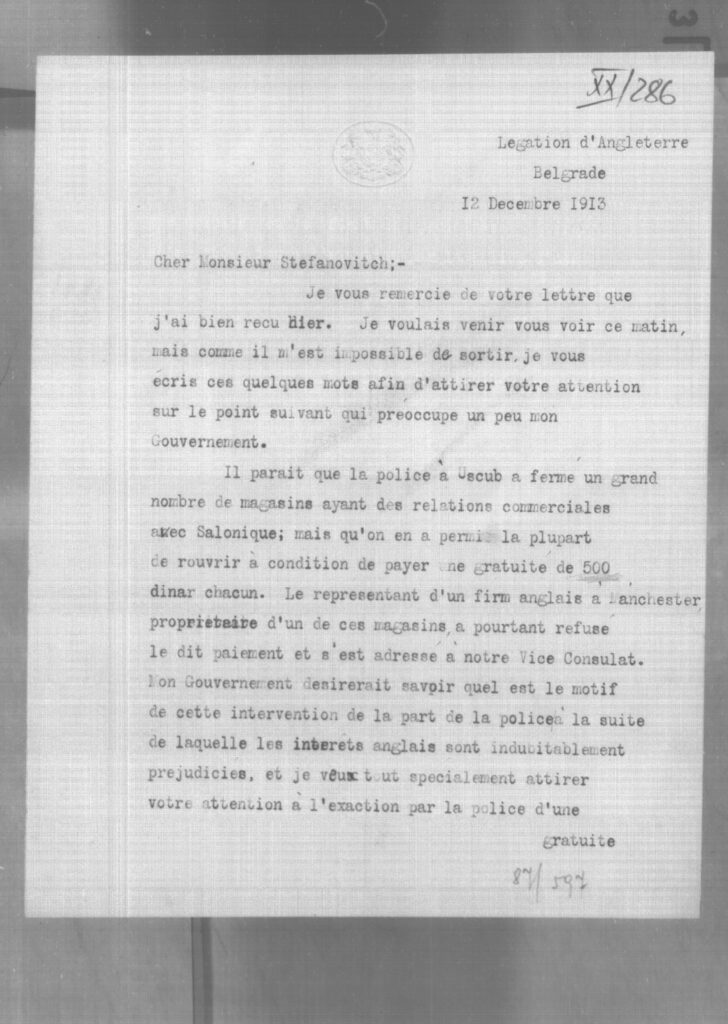
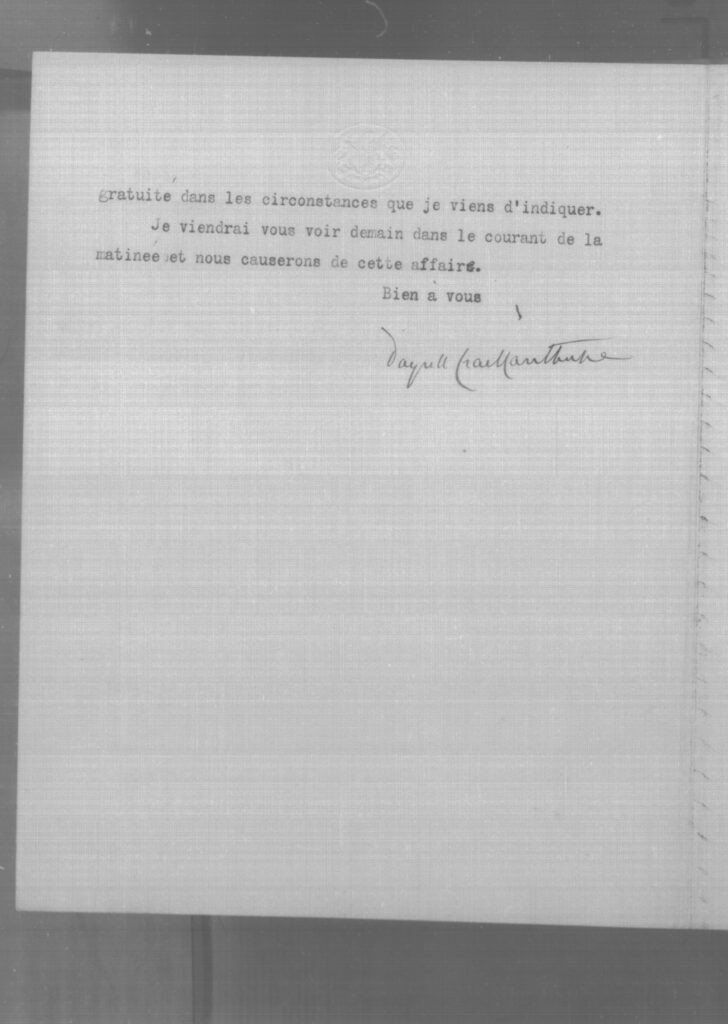
CHIEF ADMINISTRATION OF THE SKOPJE DISTRICT
No. 14818
4th December 1913
SKOPJE
*
**
Confidential
To the Honourable Minister of the Interior.
Following the telegraphic order from the Honourable Minister dated the 30th of last month, Conf. No. 16.123., the Chief Administration of the Skopje District has the honour to submit this report:
- Someone has misled the English Ambassador, alleging that the police authority in Skopje demands 500 dinars from merchants to open their shops.
- The true state of affairs is as follows:
a.) Many foreign merchants, particularly from Salonica,3 have opened their shops and branches in Skopje without registering with anyone; they have not sought permission from any authority nor have they paid any dues to either the state or the municipality. They have not even deemed it necessary to identify themselves with a passport.
b.) Such actions contravene our positive laws and I have ordered that this arbitrariness be stopped and that they be required to provide a certificate from the Skopje municipal court confirming their acceptance as citizens of Skopje, or to submit passports and other proofs that their countries recognise the same rights to our citizens (reciprocity).
They have refused to do either, and therefore the Čaršija district4 issued Order No. 3152 in the same vein, a faithful copy of which is attached herewith.5
c.) The merchants named in document No. 5248, a copy of which is attached herewith as /2, instead of submitting their proofs and registering their businesses according to sections §.§. 5 and 6 of the trade law, have sent their lawyer Mr. Ovadi to Belgrade to act on their behalf. They themselves claim to have promised him 500 dinars each, of which they have already given him 50 dinars each.
Please bear in mind that the hearing of Saport and other merchants, recorded in protocol No. 3248, was conducted in my presence and I invited them to state freely whether any authority had ever demanded or taken any money from them, and they all categorically stated that no authority had ever asked for or received any money from them.
———————————–
To clarify this matter, it is my honour to request the Honourable Minister to take action, asking the English Ambassador to specify which authority in Skopje, when, from whom, and what sum was demanded to open a business, as until the Honourable Ambassador does so, I must consider it to be slander.
Chief of the District,
S. I. Popović
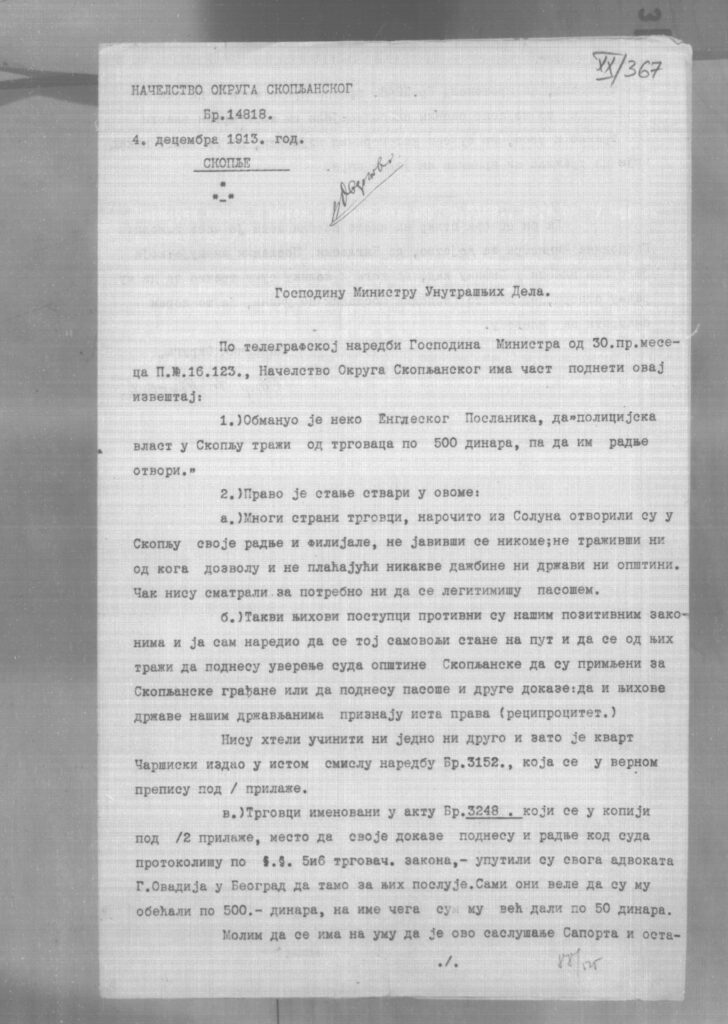
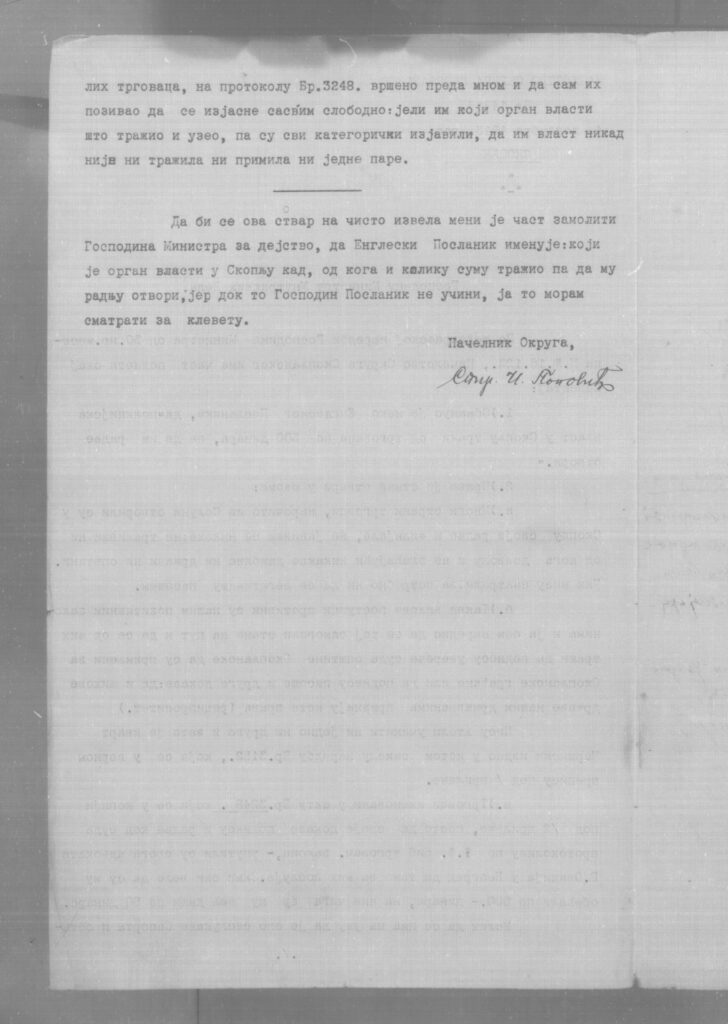
- Tran. note: Today Skopje, North Macedonia. Uskub/Uskup was the name during the Ottoman rule. ↩︎
- Tran. note: The note in French uses “gratuite”, which in French would mean “free”, but is probably meant as “gratuity”. ↩︎
- Tran. note: Thessaloniki, Greece. It would have been the main port for trade for the region and Serbia at this time. ↩︎
- Tran. note: The central city quarter. ↩︎
- Tran. note: Unfortunately, the mentioned attachments were not found in this correspondence in the Archive. ↩︎
Translated by Books of Jeremiah

